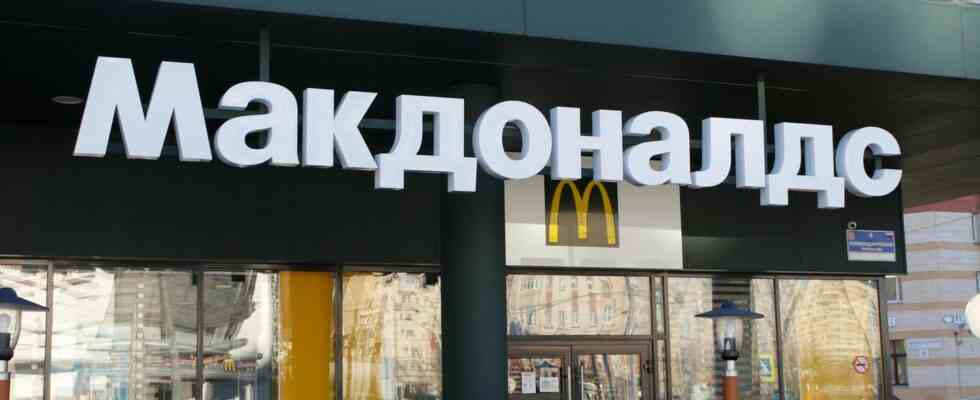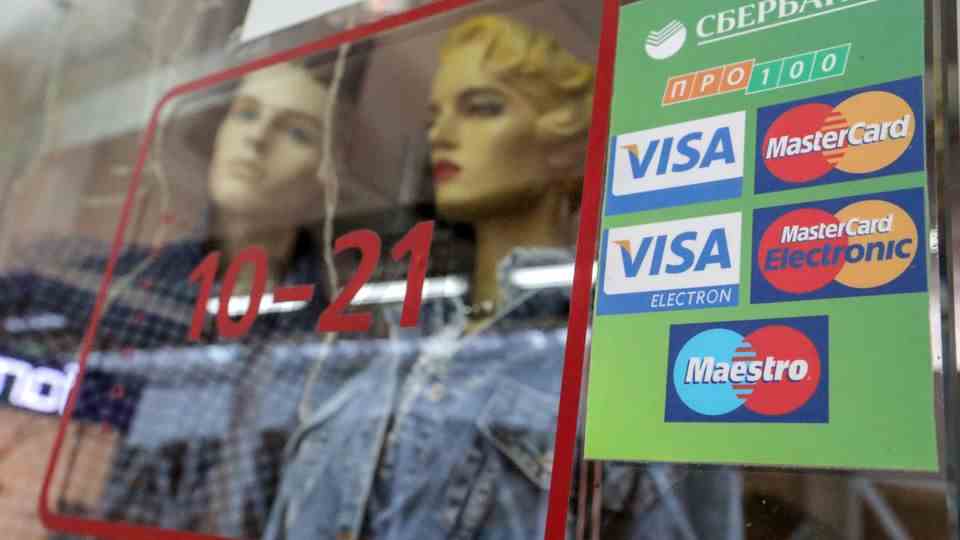fast food industry
Why McDonald’s is staying in Russia despite calls for a boycott
McDonald’s branch in St. Petersburg
© Maksim Konstantinov/ / Picture Alliance
Western companies are halting their business with Russia in droves – but US fast-food giants such as McDonald’s, Starbucks and KFC are continuing despite calls for a boycott.
Since the beginning of the Russian invasion of Ukraine, new large corporations have announced almost every day that they will stop doing business with Russia. Ikea has closed its furniture stores, H&M and Zara have shuttered their stores, Visa and Mastercard are stopping their services. Large automakers are also putting their Russian business on hold, tech companies like Apple and Netflix are pulling out – even the Western oil industry is selling off its billion-dollar stakes in the Russian energy market.
However, one industry has so far seemed unimpressed by the war: the US fast food giants, of all people, are continuing to do business in Putin’s empire and are leaving their many hundreds of shops open. Those who want to eat a Big Mac in Moscow or sip a Starbucks coffee in St-Petersburg can continue to do so.
There is increasing public resistance to this: under the hashtags #BoycottMcDonalds or #BoycottCocaCola and #BoycottPepsi, social media users have in recent days denounced the attitude of the corporations to the war in Russia and called for a boycott of the products.
The New York Pension Fund, which is the third-largest pension fund in the United States and manages billions, urged McDonald’s and Pepsi to halt activities in Russia. And other chains like Burger King, KFC and Starbucks are also under considerable pressure because of their business in Russia.
Fast food empires under pressure
So far, the industry has reacted to the Russia shock primarily according to the diving station principle. To date, McDonald’s and some other chains have not even made a statement condemning the war, at least verbally. Also one star-Inquiry to McDonald’s initially went unanswered. Starbucks boss Kevin Johnson described the invasion as “unprovoked, unlawful and horrific attacks,” at least in a statement to employees. The approximately 130 stores of the coffee chain in Russia are still open, even if the proceeds are to flow into humanitarian aid for Ukraine.
Closing branches in Russia overnight is not that easy for most fast food chains. Because they often don’t run the restaurants themselves, but in the franchise model. The Russian Starbucks stores are operated by a franchise conglomerate from Kuwait. Domino’s Pizza and Burger King are also all franchised in Russia.
And the fast-food group Yum Brands also runs its more than 1,000 Russian stores of the Taco Bell, KFC and Pizza Hut chains, mostly as franchises. “We are shocked and saddened by the tragic events in Ukraine,” Yum told CNBC. The group is focused on the safety of employees, franchisees and partners in the region, it said. In order to withdraw the brands from Russia, however, a large number of franchise partners would first have to be bought out of existing contracts.
McDonald’s operates stores itself
McDonald’s is in a special situation because it runs most of its stores in Russia itself. Of the 847 burger restaurants in the country, McDonald’s operates 84 percent itself. On the one hand, this means that McDonald’s would have it largely in its own hands to stop sales in Russia. On the other hand, the financial losses would also lie directly with the group itself.
A statement from the group to investors said that the 955 restaurants in Russia and Ukraine account for only 2 percent of global group sales, but for 9 percent of revenue. Because most of the shops are operated by the company itself, more of what customers pay at the checkout is left with the group itself. Ironically, the Russian restaurants are particularly lucrative for McDonald’s.
But keeping the stores open could also cost McDonald’s dearly. In his fire letter, Thomas di Napoli of the New York Pension Fund sees “significant and growing legal, compliance, operational, human rights and human resources and reputational risks.” McDonald’s has lost more than 10 percent of its value on the stock exchange in recent weeks.
Swell: Reuters / NYTimes / CNBC / BBC / MC Donalds



